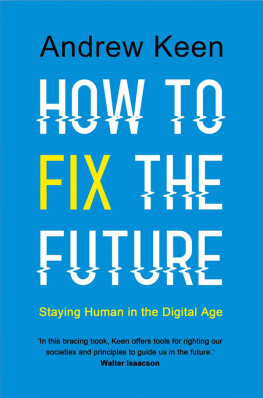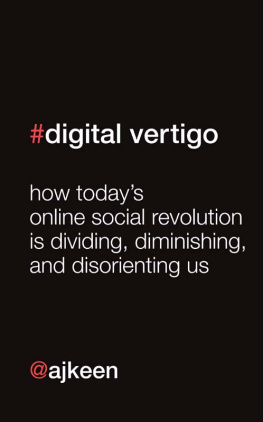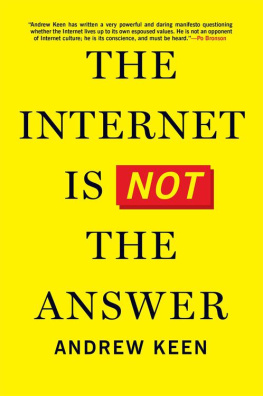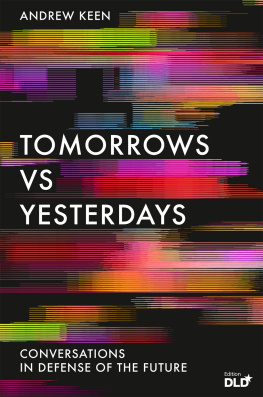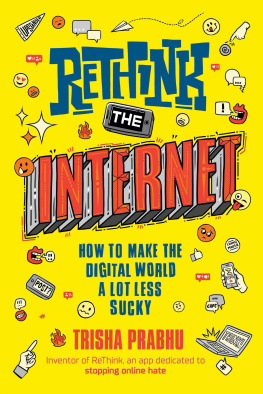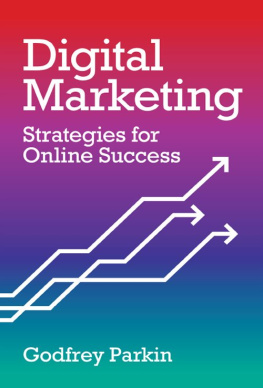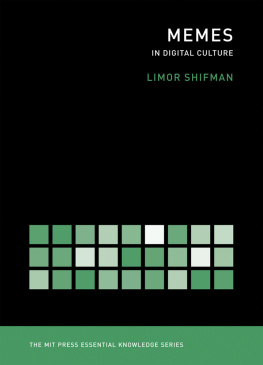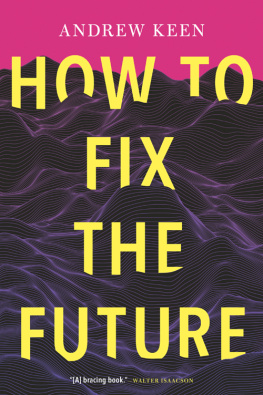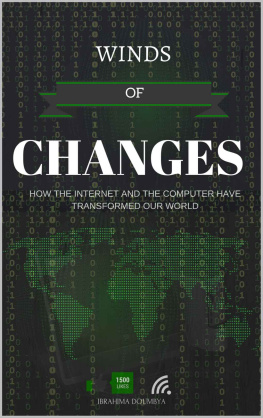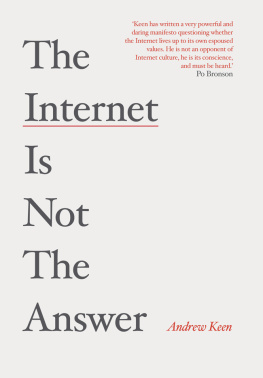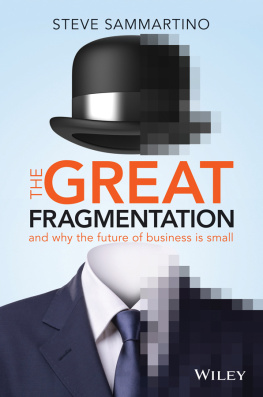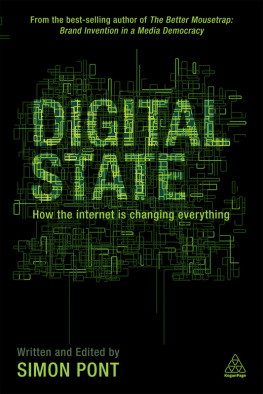Contents
Guide

ALSO BY ANDREW KEEN
The Cult of the Amateur: How Todays Internet Is Killing Our Culture
Digital Vertigo: How Todays Online Social Revolution Is Dividing, Diminishing, and Disorienting Us
The Internet Is Not the Answer

First published in hardback in the United States of America in 2018 by Atlantic Monthly Press, an imprint of Grove Atlantic, Inc.
First published in hardback in Great Britain in 2018 by Atlantic Books, an imprint of Atlantic Books Ltd.
Copyright Andrew Keen, 2018
The moral right of Andrew Keen to be identified as the author of this work has been asserted by him in accordance with the Copyright, Designs and Patents Act of 1988.
All rights reserved. No part of this publication may be reproduced, stored in a retrieval system, or transmitted in any form or by any means, electronic, mechanical, photocopying, recording, or otherwise, without the prior permission of both the copyright owner and the above publisher of this book.
1 2 3 4 5 6 7 8 9
A CIP catalogue record for this book is available from the British Library.
Hardback ISBN: 978-1-78649-164-0
Trade Paperback ISBN: 978-1-78649-166-4
Paperback ISBN: 978-1-78649-168-8
E-book ISBN: 978-1-78649-167-1
Printed in Great Britain
Atlantic Books
An imprint of Atlantic Books Ltd
Ormond House
2627 Boswell Street
London
WC1N 3JZ
www.atlantic-books.co.uk
For our kids
CONTENTS
The Senate also has a standing rule never to debate a matter on the same day that it is first introduced but to put it off till the next morning. This they do so that a man will not blurt out the first thought that occurs to him, and then devote all his energies to defending his own proposals, instead of considering the common interest. They know that some men have such a perverse and preposterous sense of shame that they would rather jeopardize the general welfare than their own reputation by admitting they were short-sighted in the first place. They should have had enough foresight at the beginning to speak with consideration rather than haste.
Thomas More, Utopia
PREFACE
AN INTERNET OF PEOPLE
Having spent the last decade writing critically about the digital revolution, Ive been called everything from a Luddite and a curmudgeon to the Antichrist of Silicon Valley. At first I was part of a small group of dissenting authors who challenged the conventional wisdom about the internets beneficial impact on society. But over the last few years, as the zeitgeist has zigged from optimism to pessimism about our technological future, more and more pundits have joined our ranks. Now everyone, it seems, is penning polemics against surveillance capitalism, big data monopolists, the ignorance of the online crowd, juvenile Silicon Valley billionaires, fake news, antisocial social networks, mass technological unemployment, digital addiction, and the existential risk of smart algorithms. The world has caught up with my arguments. Nobody calls me the Antichrist anymore.
Timingas I know all too well from my day job as a serial entrepreneur of mostly ill-timed start-upsis everything. Having written three books exposing the dark side of the digital revolution, I think the time is now right for something more positive. So, rather than yet another noxious screed against contemporary technology, this book offers what I hope are constructive answers to the myriad questions on the digital horizon. To borrow a fashionable Silicon Valley word, this represents a pivot in my writing career. What you are about to read is a solutions book. Its obvious that the future needs to be fixed. The question now is how to fix it.
This is also a people book. What Ive tried to write is a human narrative. Its the story of how people all over the worldfrom Estonia and Singapore to India, Western Europe, the United States, and beyondare trying to solve the great challenges of our digital age. Out of the crooked timber of humanity, the eighteenth-century German philosopher Immanuel Kant suggested, no straight thing was ever made. But there is one straight thing about all the people described in this book. Although there might not be any single solution, any magic bullet for creating an ideal network society, what unites all these people is their determinationwhat I call agencyto shape their own fate in the face of technological forces that often seem both uncontrollable and unaccountable.
There is today much hype, some of it justified, about the internet of thingsthe network of smart objects that is the newest new thing in Silicon Valley. Rather than an internet of things, however, this book showcases an internet of people. I show that instead of smart technology, its smart human beings, acting as theyve always done throughout historyas innovators, regulators, educators, consumers, and, above all, as engaged citizenswho are fixing the twenty-first-century future. At a time when our traditional notion of humanity is threatened by artificial intelligence (AI) and other smart technologies, its this humanist veritythe oldest of old thingsthat is the central message of the book.
There is, however, nothing inevitable about a global network of people successfully fixing the future. The issues that confront us are urgent and complex. Time is many things, but it isnt infinite, at least not for us humans. The digital clock, which seems to proceed at a more accelerated pace than its analog forebear, is already ticking furiously. Unless we act now, we increasingly risk becoming powerless appendages to the new products and platforms of Big Tech corporations. This book, then, is also a call to arms in a culture infected by a creeping (and creepy) technological determinism. And its a reminder that our own human agencyour timeless responsibility to shape our own societiesis essential if we are to build a habitable digital future.
In contrast with smart cars, the future will never be able to drive itself. None of us, not even the Antichrist of Silicon Valley, have superhuman powers. But by working together, as weve done throughout history, we can build a better world for our children. This book is dedicated to them. They are why the future matters.
Andrew Keen
Berkeley, California
July 2017

INTRODUCTION
WEVE BEEN HERE BEFORE
The future, it seems, is broken. We are caught between the operating systems of two quite different civilizations. Our old twentieth-century system doesnt work anymore, but its replacement, a supposedly upgraded twenty-first-century version, isnt functioning properly either. The signs of this predicament are all around us: the withering of the industrial economy, a deepening inequality between rich and poor, persistent unemployment, a fin-de-sicle cultural malaise, the unraveling of postCold War international alliances, the decline of mainstream media, the dwindling of trust in traditional institutions, the redundancy of traditional political ideologies, an epistemological crisis about what constitutes truth, and a raging populist revolt against the establishment. And while we are all too familiar with what is broken, we dont seem to know how we can get anything to work anymore.

